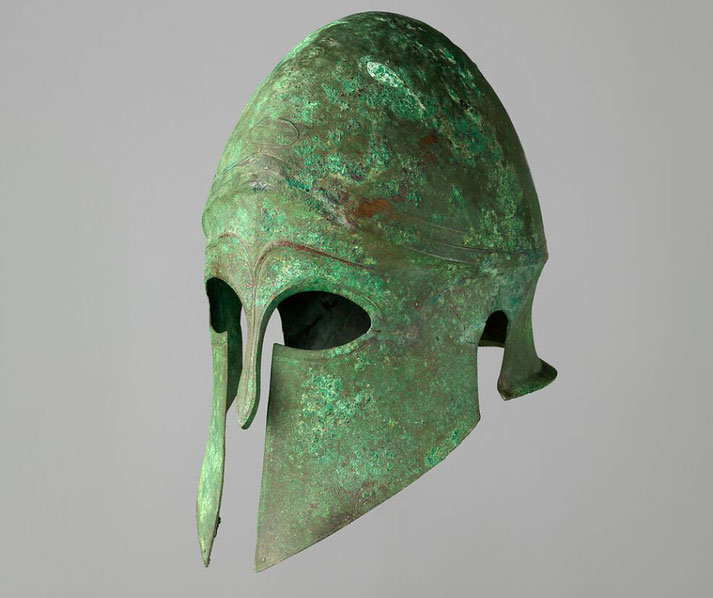Was Nicias responsible for Athens’ defeat in the Peloponnesian War?

In the late 5th century BCE, the Greek city-state of Athens was confident in its naval power and political influence, and entered the Peloponnesian War with the goal of expanding its control.
Yet as the conflict deepened, the success of its campaigns increasingly depended on the judgment of individual leaders who navigated both military challenges and the demands of an unstable democracy.
Among them, one general’s decisions would become a main focus for historians trying to understand how Athens lost its grip on power.
Nicias' political and military career
Nicias held an important position in Athenian politics during the Peloponnesian War.
He maintained influence between the radical policies of Cleon and the adventurous proposals of Alcibiades.
The Athenian assembly trusted him as a cautious leader who preferred negotiated settlements and careful planning.
His standing increased after the Peace of Nicias in 421 BCE, which temporarily ended hostilities between Athens and Sparta.
It had been negotiated primarily by Nicias and the Spartan king Pleistoanax, and the agreement followed a period of mutual exhaustion after ten years of fighting.
Under its terms, both sides agreed to return most of the territory and prisoners they had captured, and to restore the political situation to what it had been at the outbreak of the war in 431 BCE.
However, several key allies of both Athens and Sparta refused to accept the terms: most notably Corinth, Thebes, and several Peloponnesian and Delian League members.
Unfortunately, the agreement lacked strong enforcement mechanisms it needed int order to resolve underlying hostilities, especially regarding control of key cities and alliances.
Although it technically lasted six years, open warfare resumed well before then.
During this time, Nicias continued to favour peace, but his influence waned as the war resumed.
How the attack on Sicily went so wrong
During the planning of the Sicilian Expedition in 415 BCE, Nicias urged restraint and warned the assembly that the risks outweighed any strategic benefit.
Nevertheless, Alcibiades persuaded the people with promises of alliances and wealth, and the expedition received massive support.
Over 130 triremes, which carried approximately 27,000 soldiers, sailors and attendants, prepared to sail.
Under the terms of the decree, command passed to Nicias, Lamachus, and Alcibiades, with the latter likely second in command.
After Alcibiades fled into Spartan protection and Lamachus died in action, Nicias remained in command of a campaign that grew more difficult.
On arrival in Sicily, Nicias postponed direct attacks on Syracuse and hoped the threat of siege would lead the city to negotiate.
Instead of launching an immediate offensive, he constructed fortifications and probed the enemy with caution.
During this delay, the Syracusans improved their walls and received word of Spartan reinforcements.
Eventually, Gylippus arrived with an initially small but determined force. In response, Nicias sent reports to Athens that underestimated the growing danger and avoided clear accounts of the danger.
He may have done so to avoid hurting morale in the city or because he did not fully recognise the scale of the threat facing the expedition.
As a result of these unclear messages, reinforcements came late and with fewer resources than required.
Under pressure, Nicias relied heavily on religious rituals and failed to adjust his strategy.
After Demosthenes arrived and evaluated the situation, he advised an immediate retreat.
Even then, Nicias delayed the decision while he awaited good signs from the gods, including a lunar eclipse that he interpreted as a sign against departure.
In the meantime, the Syracusans sealed off the harbour and prepared to strike. On the night of the final escape attempt, confusion and panic broke out among the Athenians, whose ships could not break the enemy line.
After their defeat, the survivors fled by land and were hunted down. Both Nicias and Demosthenes surrendered and were executed.
Captured prisoners were thrown into the stone quarries of Syracuse, where many died of disease and exposure.

Was Nicias really at fault?
In the wake of the expedition, Athens suffered a drop in spirit and troop recruitment.
With thousands of trained rowers and soldiers dead or enslaved, the city could no longer maintain its naval power.
Under growing pressure, the empire faced revolt in the Aegean and lost the tribute that funded its military.
Soon afterwards, Sparta gained Persian support and then began to build a navy to rival Athens.
News of the disaster reached Athens gradually, and public response turned to despair and anger.
In assessing Nicias’ responsibility, it becomes clear that other factors contributed to the fall of Athens.
Earlier in the war, Pericles had steered the city toward empire and conflict. The assembly approved the Sicilian campaign with enthusiasm and ignored warnings of overstretching.
Still, once Nicias assumed sole command, he decided what happened. He delayed the retreat, hid the truth from the assembly, and followed religious signs instead of adapting to battlefield demands.
In military terms, the failure in Sicily ended any hope that Athens could recover its position.
On the level of personal judgement, Nicias was responsible for wasting resources, poorly managing the strategy, and rejecting timely withdrawal.
What do you need help with?
Download ready-to-use digital learning resources
Copyright © History Skills 2014-2025.
Contact via email
With the exception of links to external sites, some historical sources and extracts from specific publications, all content on this website is copyrighted by History Skills. This content may not be copied, republished or redistributed without written permission from the website creator. Please use the Contact page to obtain relevant permission.





